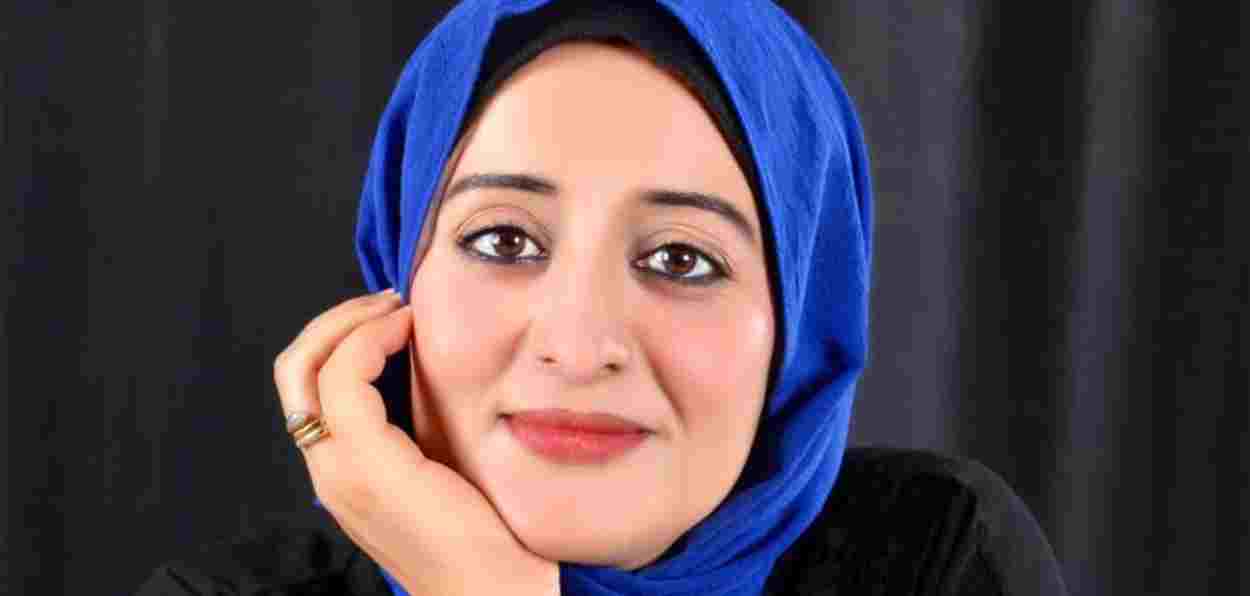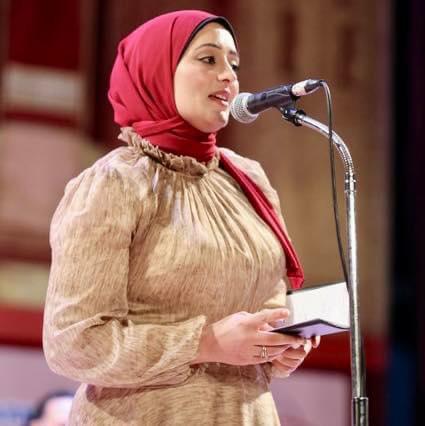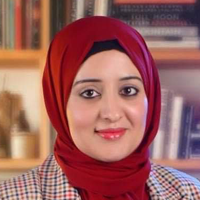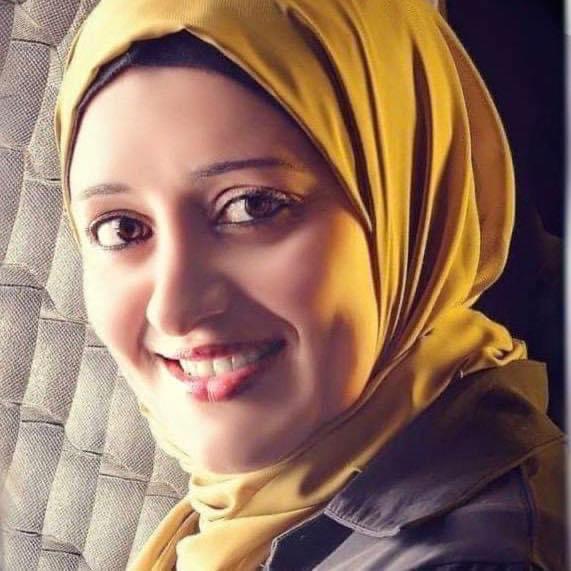
Ameena Majid
Arab world's first well-known Urdu poet Dr. Walaa Jamal El Esseily needs no introduction in the world of mushairas, the poetry sessions held across India extolling the beauty of the language.
Her poetry comes as a pleasant surprise to poets in India since she is an Egyptian. Most literary figures know that the relations between India and Egypt are older than the history of the mummies but not many know that the roots of Urdu also have a hundred years of history in Egypt.
Dr. Walaa Jamal mentioned her love for Urdu and India in a beautiful expression. “If I don't come to India, I don't get peace. I try to visit India every year. I love India's civilization and culture, I love to be called 'Indian', I get honour and respect, I am very grateful for that,” she told Ameena Majid of Awaz-the Voice in a video interview.
Dr. Walaa Jamal lives in Cairo, the capital of Egypt, where she is working as an associate professor at Ain Shams University.
She says the teaching of Urdu language in Egyptian universities has been going on for 80 years. In 1939, on the order of King Farooq, the Egyptian government institution, and the Oriental Language Institute, started working in Cairo University. After 1952, the Egyptian government started broadcasting in the Urdu language to build cordial relations with the subcontinent.
 Dr Walaa Jamal El Esseily reciting her poetry
Dr Walaa Jamal El Esseily reciting her poetry
The teaching of Urdu at Al-Sharqiya Institute of Languages was started by Hasan-ul-Azmi from Azamgarh who had obtained the certificate of al-Alamiya from Jamia Al-Azhar in 1938.
The first attempt to introduce the Urdu language in Egypt was made by a few Indians who went to Egypt in 1930. The same year, an Indian journalist, Abu Saeed Al Arabi, first published an Urdu language magazine titled 'Jehan Islami' from Cairo.
About her love of Urdu and poetry, Dr. Walaa Jamal says that I learned Urdu in four years in Egypt. I have never been to Pakistan (which has Urdu as a national language), but I have visited India four times. It was my love for Urdu that I did my MA in Urdu and later obtained a Ph.D degree in the same language. I am now an associate professor of Urdu.”
In the Interview, she said, “I have been fond of poetry as a child. I have a passion for Urdu poetry.”
After studying in college, she decided to pursue poetry as a subject. “I like Urdu poetry very much. There is sweetness in the Urdu language. This is the secret of my love for this language.”
 Dr Walaa Jamal
Dr Walaa Jamal
In response to a question, Dr. Walaa Jamal says that on her first attempt, she recited a poem, not a ghazal, because it )singing ghazal) was very difficult for her.
“My first book was There is an ocean in between had prose and free verse.”
Apart from these books, Dr. Walaa Jamal has also gifted dozens of articles, features, and essays to the Urdu world from Egypt. Dr. Willa Jamal Al- Esseily, has also been honoured with many literary awards.
She says, “The first time I went to India, after participating in a program, I was fascinated by its civilization and culture. I felt as if someone had cast a spell on my mind. After that, I started writing. I wrote a poem and posted it on social media and people appreciated it. When I got appreciation, I focused on it. I thought I would try poetry.
“So I must have succeeded because I was becoming obsessed,”
She says, “When I write on paper what I don't speak to anyone, it gives me peace.”
Dr. Walaa Jamal says that once upon a time she had no idea about the Urdu language. “In Egypt, we did not know about Urdu, we only knew Hindi language because of Hindi movies. When I asked the people about Urdu in Egypt, I was told it’s a kind of Hindi. So when I came to know that Urdu is like Hindi, I should learn it because I was interested in Indian movies and listening to songs, so I got inclined towards learning it.”
Dr Walaa Jamal said that there are two collections of her poems, one of which is The sea is in between and the other is Dokhtar Mir.
 Dr Walaa Jamal El Esseily
Dr Walaa Jamal El Esseily
About his collection of poems Dakhtar Mir, she also refers to Egypt in the following couplet:
I am on the banks of the Nile but in sight
Jhelum is Ganga is Jumna, Ravi is Chenab
Mein neel ke kinare hon lekin nigah mein
Jehlum hai ganga jamna hai Ravi chanab hai
This poem is proof that Dr. Walaa is highly influenced by the Ganga Jamani civilization of India. Dr. Villa's Urdu poetry, fiction, and essays are impressive, and so is her personality. She comes across as a calm, gentle, and sophisticated person with her prompt responses during the Mushiras.
Dr Walla Jamal says that in Egypt, Urdu is learned in college, not school, so perhaps many people don't know about it. “If someone asks, we tell them that the number of students in our department is high. People are also interested in the fact that Urdu is taught in seven universities. The number of students is more than 3,000. Not much work has been done regarding the Urdu language because most of the Urdu texts are translated into Arabic.”
Dr. Jamal says that the responsibility of “Urdu is on all of you”. The future of the language is bright because Urdu is not my mother tongue but because of your encouragement, I have adopted it.” She is the epitome of the relationship between India and Egypt, and Urdu and Arabic.
Dr. Walaa Jamal says that she is usually busy teaching and also being a mother. “I have a lot of responsibilities, but whenever I get time, I study.
She says that mher two favorite Indian cities are Lucknow and Kolkata. She has also written poems on these two. “I have found a charm in the culture of Kolkata and Lucknow. If I talk about Lucknow, I love the culture of the city along with its tasty kebabs, I love Indian food.”
ALSO READ: Yoga is very popular in Syria; Riam Alshadaydeh
Dr. Jamal says that she will come to India again. “India is in my heart. The love and culture of this country keep me close to it.”
See the interview here:
